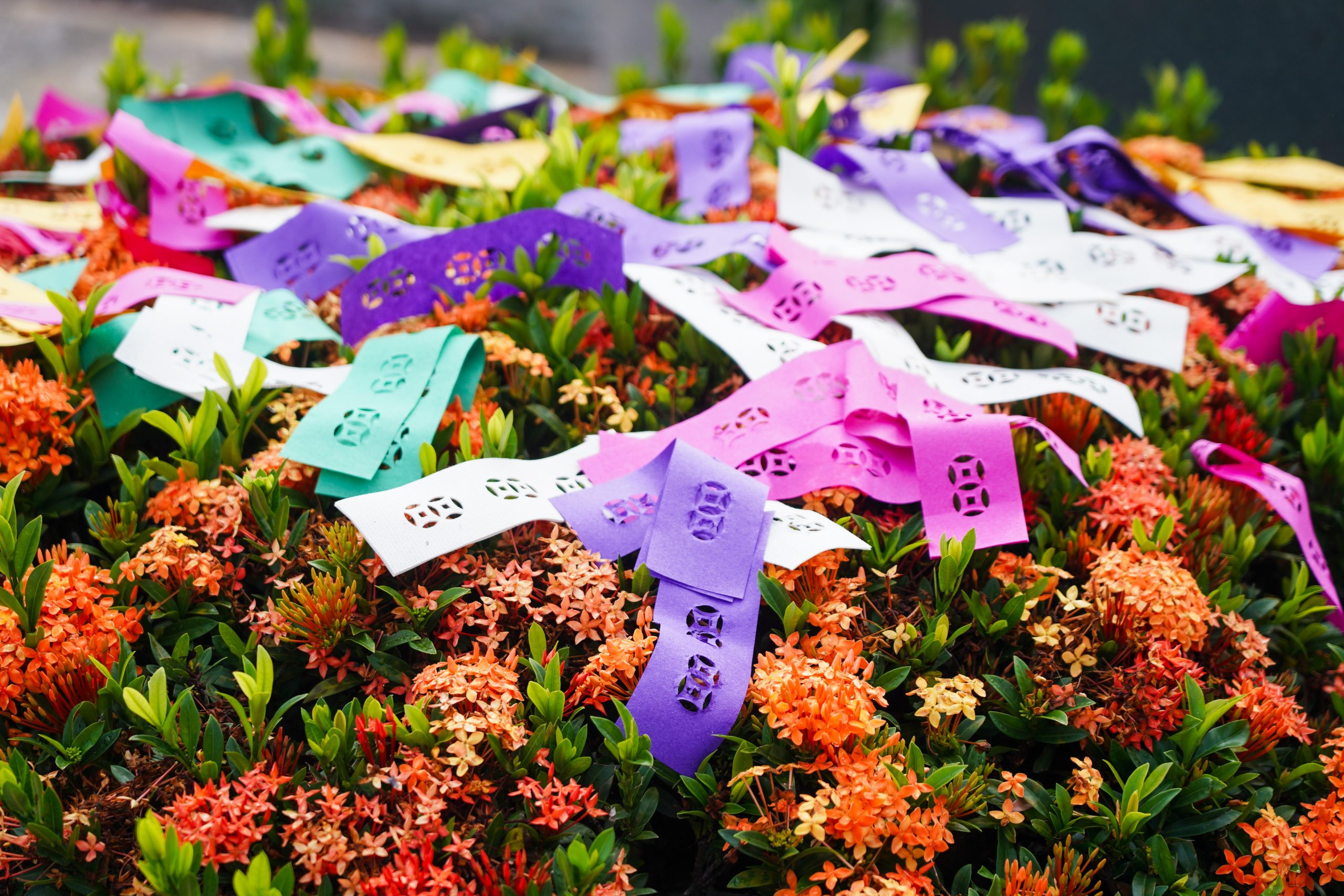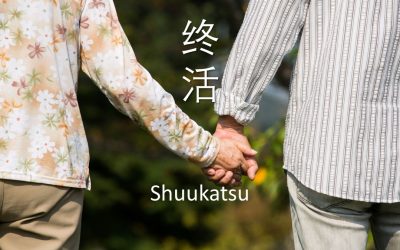Treating the Dead as in Life: Reflecting on the Meaning of Ritual

Have you noticed that Chinese people, compared to many other ethnic groups, especially emphasize the remembrance and worship of ancestors? Even though other ethnic groups may also remember deceased relatives, few exhibit the strong sense of ritual like the Chinese, not only offering various foods that the ancestors enjoyed during their lifetime but also crafting paper effigies of everyday items for their use in the afterlife.
Traditional Chinese ancestral worship rituals are among the most important activities in Chinese society, sometimes even surpassing various religious events. Even during festivals not primarily centered around ancestral worship, we still offer festival foods to our ancestors. During the Mid-Autumn Festival, we eat mooncakes; during the Dragon Boat Festival, we eat rice dumplings; during the Lantern Festival, we eat tangyuan. We never forget to offer these to our ancestors.
For feast days directly related to their ancestors, such as the birth and death anniversaries, Qing Ming Festival, Chong Yang (Double Ninth) Festival, and the Yu Lan Pen Festival, and the Zhong Yuan Festival (commonly known as the Ghost Festival), the Chinese people are even more serious about their observances. Traditional Chinese communities hold elaborate rituals for several days, sparing no expense to fill tables with offerings, both vegetarian and non-vegetarian, along with mountains of joss paper money, effigies, spirit houses, and even paper effigies of children. We try our best to fill up all parts with both the visible (offerings) and invisible (where do the paper effigies go after being burnt?) aspects.
Why do Chinese people have such social traditions?
In the “Doctrine of the Mean” from the Book of Rites, there is a phrase: “Thus they served the dead as they would have served them alive; they served the departed as they would have served them had they been continued among them – the height of filial piety.” It means that we should respect and love our deceased parents and ancestors as if they were still alive. Therefore, the various ancestral worship practices of the Chinese stem from this reverence.
The same principle applies to funeral customs. The most direct funeral customs that serve the dead as if they were alive include welcoming guests into the house, washing the face with purchased water, and offering food. Regardless of whether one believes in ghosts or spirits, the fundamental idea behind funeral customs is the love for the departed as if they were alive. The focus of offering sacrifices and crafting joss paper spirit houses is not whether “the ancestors can actually eat or receive them” but rather expressing our love and remembrance through these actions.
Although the emphasis of “serving the dead as if they were alive” lies in “filial piety” due to Confucian emphasis on family and human relationships, the “benevolence” they stress is meant to continuously expand outward. Hence, sayings like “respect your own elders as well as others’, care for your own children as well as others'” emphasize extending love beyond immediate family. Therefore, we also worship deceased teachers, friends, and even unfamiliar “good brothers.” Worshipping “lonely spirits and wandering ghosts” should stem from an extension of compassion toward society rather than fear of mysterious forces or intent for exchange conditions.
In studying funeral customs, the most common question is often “how is this custom or ritual performed?” rather than “what is its origin? Why is it done this way?” However, understanding the origin and reasons behind a custom is crucial before determining how it should be done. We often say “preserve Chinese cultural traditions,” but if only the forms are preserved without caring about or misunderstanding the underlying spiritual values, it loses its meaning.
The topic of this column is “Treating the Dead as in Life: Reflecting on the Meaning of Ritual.” “Reflecting on the Meaning of Ritual” emphasizes that when we encounter or practice a certain ritualr1, we should consider its “meaning.” “Meaning” represents not only “significance” but also “emotional significance” and “moral significance.” “Significance” refers to the spiritual values that etiquette intends to convey. “Emotional significance” is how we establish good relationships and friendships with others through ritual. “Moral significance,” the most frequently overlooked but crucial aspect, is that ritual must conform to the public norms of society and convey positive moral values. However, societal values may change with the times, so when a particular ritual can no longer embody the noble values of the current society, it should be discarded or modified.
Therefore, the purpose of this column is to maintain the compassion behind “treating the dead as in life” and to reflect together on the meanings, emotional significance, and moral significance behind various funeral customs, thus better promoting the preservation and inheritance of Chinese traditional cultural values.
Nirvana Care Professional Department – Ritual & Culture Management
Exploring the impact and development of Chinese culture on Malaysian society and focusing on the origins of the community’s funeral cultures, we have borrowed and adapted ancient customs to nurture the development, cultivation, deeper understanding and growth of Nirvana Care’s bereavement care services.
About the Author
Ng Ai Ling, Nirvana Care Professional Department – Ritual & Culture Management
Ms. Ng has a master’s degree in Chinese literature from Taiwan’s National Dong Hwa University and many years of experience in writing and research. She is currently a newspaper columnist and has been publishing articles on Hong Kong and Taiwan online platforms for many years.
Malaysia Multi-racial Farewell Ceremonies
Malaysia is a multi-racial country, with the main ethnic groups being Malay, Chinese and Indian. For the ethnic Chinese, there are various religious funeral rites such as Buddhist, Taoist and Christian, and Islamic and Hindu rites for the other ethnic groups. Different ethnic groups and religions have different cultural practices, religious ideologies, beliefs and values, making Malaysia’s funeral culture appear diverse in many ways.
Ancestral Tablet
The ancestral tablet is also called “soul tablet”, “spirit tablet”, “soul seat” and others. In Buddhism, it is called “lotus dais” or “lotus seat”. It is generally used as a temporary seat for the soul of the departed to reside, and convenience for the family members, relatives and friends to pay their respects.
shuukatsu
Shuukatsu / Translated by Colin Kuan The term “shuukatsu” has become a popular buzzword in recent years. What then is “shuukatsu”? Shuukatsu originated from Japan. According to the United Nation’s 2019 Revision of World Population Prospects, the most important...
Information for Malaysians | What to do when a loved one dies
Information for Malaysians What to do when a loved one diesThe loss of a loved one is an inevitable life experience for everyone as we grow up, but we must always be brave enough to face and accept it. With birth comes death, and with growth comes decline. This...
The guardian deity of tombs – Hou Tu
The guardian deity of tombs - Hou Tu Whenever you visit a cemetery during Qing Ming, have you ever noticed a small stone tablet with the characters “后土 (Hou Tu)” inscribed on it nearby the tombs of your ancestors? Before paying respects to our ancestors, we will offer...
Pre-planning: Sparing your loved ones from being exploited
Pre-planning: Sparing your loved ones from being exploited Whether you are prepared for it or not, when a loved one passes away, the emotional toll that grief exerts can be so overwhelming it leaves very little room for other considerations. The last thing that any...
Nirvana Ming Palace
Nirvana Ming Palace: A realm of tranquility where culture meets artCovering an area about 30,000 square feet, Nirvana Ming Palace is located at Nirvana Memorial Park (Shah Alam). The overall architectural style of Ming Palace is inspired by the designs of palaces from...
Create your own “home”
Create your own “home” It is believed that many people have a lifelong wish to live in comfort and peace - during their lifetime - in the home of their dreams. It is worth noting that people only can envision the actual house they live in, but have no idea of where...
Sheng Ji · A new turnaround of fortunes
Sheng Ji ·A new turnaround of fortunes During the festive season, relatives and friends will convey well wishes of “good health”, “long life” and more. Of course, we all hope that things come as easy as they say, but did you know that you can change your fortunes by...
Ji Le Columbarium
Nirvana Memorial Garden (Semenyih) Ji Le Columbarium Spacious & Minimalistic · Reasonable & Affordable All sentient beings are suffering, and attaining Ultimate Bliss is the best way to escape from suffering. Hence, the columbarium here at Nirvana Memorial...


























